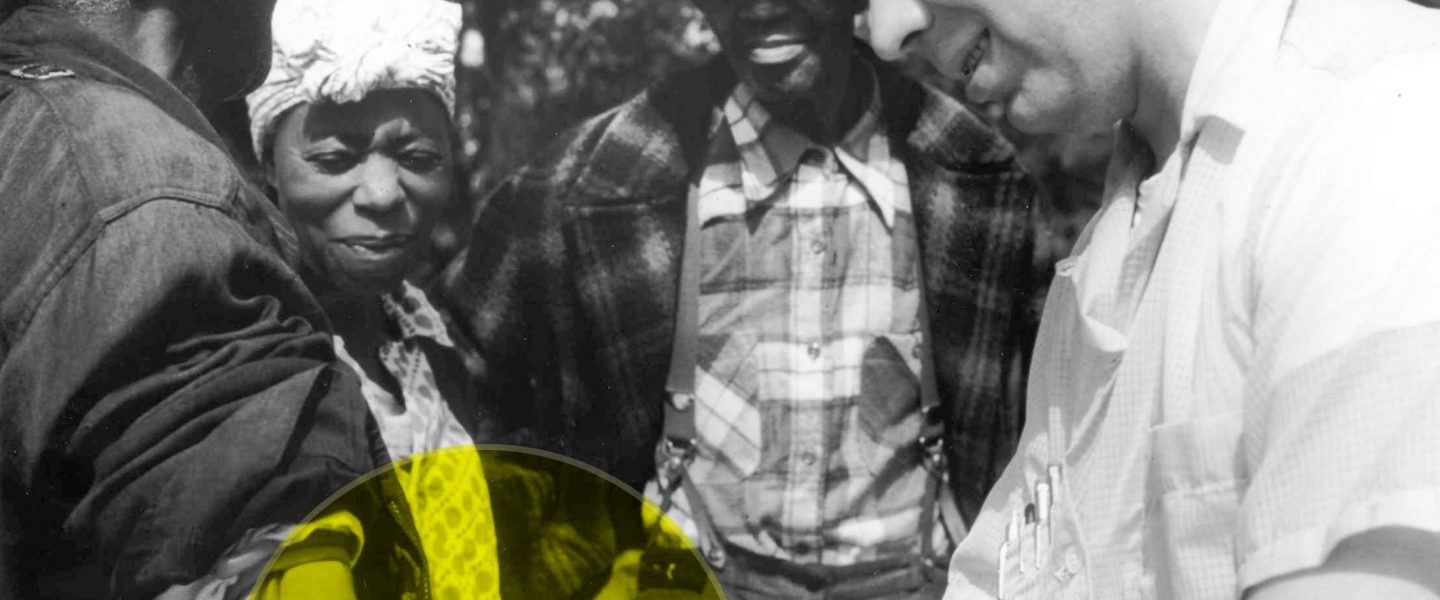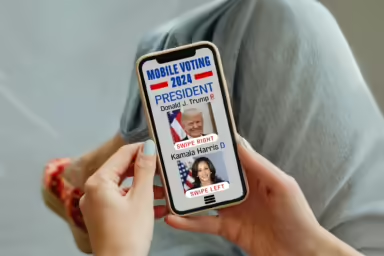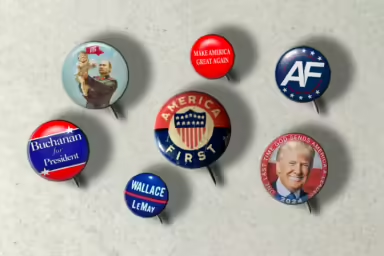An alarming look at the current erosion of medical consent in the treatment of African American patients.
The COVID-19 pandemic and the race for a vaccine have opened up long-festering questions about medical consent, transparency, and the role of race in today’s strained health care system.
The idea of informed medical consent has long been a fundamental principle of medical ethics. However, the ways in which that consent is obtained, especially from minority groups, have been uneven and sometimes criminal.
In this week’s WhoWhatWhy podcast, award-winning writer and medical ethicist Harriet Washington — the author most recently of Carte Blanche: The Erosion of Medical Consent — argues that these issues are not new, and that care and ethical treatment of minorities have been eroding for the past 25 years. As a result, Black Americans have been disproportionately harmed in the process.
Certainly, the infamous Tuskegee Study, which allowed Black participants to suffer from the long-term effects of syphilis in the name of scientific research, still reverberates with a large segment of the African American population that is unwilling to get vaccinated against COVID-19.
Washington details the inequity in coronavirus treatment for people of color and how doctors have imposed questionable drugs and nonconsensual treatments on them. She shows how medical consent has been devolving, partly as a result of laws put in place by the Clinton administration in 1996, including a loophole to a federal law that permits nonconsensual research on private citizens, and particularly on trauma patients.
Washington makes the case that we have seen a modern abandonment of medical consent in the military, and tells the story of a Pentagon effort in 1990 which forced experimentation of an anthrax vaccine on ground troops who were headed to the Persian Gulf.
Washington also expresses her fear of such experimentation going on overseas. She points out that four-fifths of corporate clinical trials are now conducted in the developing world where studies can be completed more quickly and cheaply than in the US — with little oversight.
Washington is passionate about the need to bring racial equality to American medical research. This conversation is a part of her call to action.



Click HERE to Download Mp3
Full Text Transcript:
| Jeff Schechtman: | Welcome to the WhoWhatWhy Podcast. I’m your host, Jeff Schechtman. The idea of informed medical consent has been a long-time fundamental principle of medical ethics. However, the ways in which that consent has been granted, especially to minority groups and more specifically to African Americans, has been uneven and sometimes criminal. Certainly, the US Army Tuskegee experiments were the penultimate example and reverberate to this day, with respect to African American populations being unwilling to get vaccinated against COVID-19. The care and treatment of COVID-19 patients in minority communities has also raised serious ethical questions. The degree to which this pandemic experience informs us to do better in this area is still an open question, one we’re going to talk about today with my guest, Harriet Washington. |
| Jeff Schechtman: | Harriet Washington is the author of the previous book Medical Apartheid, which won the National Book Critics Circle Award. She’s been a research fellow in medical ethics at Harvard Medical School, a senior research scholar at the National Center for Bioethics at Tuskegee University, and the recipient of a Knight Fellowship at Stanford. She lectures in bioethics at Columbia, and her new work, just published, is Carte Blanche: The Erosion of Medical Consent. Harriet Washington, thanks so much for joining us on the WhoWhatWhy Podcast. |
| Harriet Washington: | Thank you for having me, Jeff. |
| Jeff Schechtman: | It’s great to have you here. Talk a little bit about the origins of this idea of medical consent. It really, from a legal perspective, goes back to the mid-forties. Talk about that. |
| Harriet Washington: | Well, medical consent actually is a lot older. Simple consent where a researcher or doctor says, ‘I’d like to try X. I’d like to try this medication on you.’ And the person says yes or no, that’s consent. But the more precise meaning, that’s what you’re talking about, informed consent and you’re right, it does emanate from the 1940s. It emanates from the end of World War II, when it was American prosecutors and doctors and ethicists who went to Nuremberg, Germany to confront the Nazi doctors who were the architects of the Holocaust. They basically were murdering, practicing genocide, harming dramatically people who were Jewish, Polish, anyone they didn’t like, but mostly Jews and they were doing it under the guise of medical treatment or medical research. |
| Harriet Washington: | So they were perverting medical research to basically harm and kill people and American doctors and prosecutors called them out for that and talked of the need to have a global standard that would be very precise and very careful in the way that you ask consent. It’s not enough, they realized, just to ask someone, ‘Yes or no, won’t you do this?’ You have to give them all the information they need to make an intelligent choice about whether it’s in their best interests to engage in the research or not. So you’ve got to tell them what you’re planning to do, how you plan to do it, what you’re going to be testing, all their other options other than being in your research study and you have to let them know that no matter what they have signed and no matter what they have been paid, they can always leave the study anytime they choose to. That’s informed consent. And that became part of our law in the 1940s, but it was almost immediately watered down a bit because researchers found it too constrictive. |
| Jeff Schechtman: | When this law originally grew up in the 1940s, to what extent was it anticipated that it was a problem here in the US? The first idea, as you talked about, was trying to create some kind of global standard. To what extent was there concern whether or not the US would live up to that standard? |
| Harriet Washington: | Good question. The global standard was enacted in order to punish the Nazi doctors, in order to say here are the things a doctor and researcher should do, and you have violated them. So the focus was on Nazi doctors, because the sentiment was something along the lines of, we need these kinds of laws for Nazi barbarians, but we don’t need them for American researchers or doctors, who are moral and ethical and would never do such horrible things. So from the beginning, even though the rationale was given that we need a global standard, the idea was only certain people needed to be held to that standard. And as you can well imagine, that was a disaster. When we began enacting in our law, the Code of Federal Regulations, tenants of the government code, we started abandoning some of them because they were too restrictive to researchers. |
| Harriet Washington: | And what happened was, over the years, more and more researchers had wanted not to go to the trouble and expense of getting individual informed consent. So they began applying to the government for waivers. ‘We want to do a study, but we don’t want to have to do informed consent. Give us a waiver so we can just send more people without even asking them for anything.’ And that happened, that happened in the military frequently. And the more dramatic case within the memory of many of us is what happened with the anthrax vaccine that was tested on soldiers, who were not FDA approved for inhalation, and anthrax was tested on soldiers. And no one had to get their permission. President Clinton had actually issued a waiver, a blanket waiver for the department of defense saying, ‘You can test these things without getting permission.’ And so soldiers were forced to take them and it became a nightmare. Soldiers who refused were punished, sent to jail. Sometimes dishonorably discharged, stripped of their military pensions, punished severely and soldiers who did take them very often fell ill. |
| Jeff Schechtman: | Are you surprised the degree to which this history, and I assumed you started working on this project before COVID-19, the degree to which this history is so much at play in the issues that we’re dealing with today in the context of this pandemic? |
| Harriet Washington: | I’m not surprised at all, because unfortunately, and you’re right, I’ve been concerned about this for a very long time. Ever since I learned that in 1996, we passed two changes to the Code of Federal Regulation that gave blanket permission for researchers to enroll people, instead of asking their permission. That’s where I became gravely concerned. But yes, the things that tend to escalate this kind of abuse, this kind of involving people in research without getting any permission are things that increase a feeling of urgency. Things like, for example, wartime, we have a war to win. It’s a matter of life or death. We may not have enough resources to do everything we want to do properly and the pressure is on to cut corners and that helped exacerbate the anthrax vaccination, giving it to soldiers. The idea was the enemies of the United States might be deploying anthrax as a biological weapon. |
| Harriet Washington: | We can’t have our soldiers incapacitated by it. They need to be protected. So this vaccine is an emergency and we don’t have time to go through normal channels. And the same thing happened with the pandemic. First of all, there’s the fact that we knew so little about this new emerging infection when the disease struck our shores, uncertainty is another thing that tends to trigger it. But certainly, the knowledge that we’re in a fight against time, against the biological enemy that we didn’t understand well and that we had definitely too few resources. We didn’t have the dedicated expertise that we would have had had that not Trump dissolved the committee dedicated to dealing with pandemics. We didn’t have vaccines yet, or any effective medication. We didn’t have enough doctors and nurses. We just didn’t have enough of anything in those situations. The pressure is always on to cut corners any way that you can and frankly, getting consent from people is sometimes one of the first things to go. One of the first casualties. |
| Jeff Schechtman: | Tell us a little bit about the ways in which this became a significant problem, a more significant problem in the African American community |
| Harriet Washington: | Became a bigger problem in the African American community in a myriad of ways. First of all, a lot of research was already being done on African Americans without getting their consent, but this was illegal. It was being done illegally. It was still being done, unfortunately. So you’ve had, unfortunately, this habit of thought. Frankly, for four centuries African American bodies have been procured and they’ve been forced into research. That is not strictly legal, but the law was not observed when it came to them, and sometimes it was legal. They’ve been further victimized by residential segregation. The fact you find African Americans confined to living in certain areas and the interesting thing is that for a long time, it was established by law in this country. I mean, racial segregation is our form of apartheid, right? But even after this was banned in the sixties, residential segregation has continued. |
| Harriet Washington: | In fact, Professor Dr. David Williams at Harvard University, an extremely experienced professor of public health, he pointed out to me that in order for us to achieve racial parody in housing, two thirds of African American would have to move somewhere else. So there are pockets, these enclaves of African Americans with Hispanic Americans, forced to live in the same area together, which makes it easy to target them. Very often, modalities that are being tested without consent were being tested by ambulance carriers. They’re carried on ambulances. They’d go to the scene where someone is held by a trauma and then they would start the research. You had ambulances in LA that were only tolling the areas where African Americans and Hispanic Americans lived. So even though in theory, everybody is vulnerable to this, and of course, many whites have been harmed as well and dragged into studies as well. |
| Harriet Washington: | But when you engineer things so that the areas where people of color live, then you end up looking for color in the study. The Polyheme study was interesting in that regard, I looked at all the cities, there were 32 cities originally targeted by the study. Most of them were one called majority-minority, which is unusual. They were cities in which most of the people who lived there were African American. Places like Detroit. Places like Washington, DC. So the thing is you can easily engineer vulnerability so that it affects people of color. But I really want to make the point — it’s extremely important I’m not saying this is only a problem with people of color — it’s a problem for all Americans. We’re all vulnerable. |
| Jeff Schechtman: | Have you seen an increase in awareness or sensitivity to this issue as a result of the pandemic? Does it suddenly take on a new meaning now? |
| Harriet Washington: | I think people are cogent enough to be afraid that this is happening. Unfortunately, it’s difficult for them to know that it’s happening because, most people I lecture around the country very frequently before the pandemic I was on the road all the time and whenever I go to a city, where I know these nonconsensual studies have been conducted, I would always ask the audience who here has heard of say the Polyheme study, who here has heard of the ROC study. Almost never would anybody respond positively. People would have no idea and yet those studies had been held right in their city. |
| Harriet Washington: | But now with the pandemic that’s happening is that people are no longer able, hospitals and nursing homes are closed institutions. You can’t go to the hospital to follow and check up on your loved one. You can’t go to the nursing home and that’s necessary I understand that. But what that means is people are aware that not being able to witness what’s happening on the floors means that things could be happening with their loved ones that they would not be aware of. So they may not know, but I think there’s heightened concern about this issue. |
| Jeff Schechtman: | Is there a danger in this issue that like so many other things that, medicine in this case and research and all the positive things that are potentially part of this, become so politicized? |
| Harriet Washington: | I would argue that it’s exactly backward. We are here because of politics. That decision to remove our informed consent for medical research is largely a political decision. It’s something that, for example — and an economic decision. The FDA requires people to complete their studies in a few years. That’s a lot of time pressure already and one way of doing studies more quickly is to not go to the trouble of individual informed consent. It takes a long time to explain to people, all the information you have to give to them. And then, of course, you’re always faced with the chance of people when they understand what you want to do are going to say no, making it harder to enroll someone. So the desire for waivers and dismissals of consent is very much a political one. It’s not based on best healthcare, although the rationales often talk about that. |
| Harriet Washington: | But you have to understand when you hear people say that medical research is a good thing, any mass medical research is a good thing, but individual research studies are not always good and research is always risky. There’s always risk involved, even in the best designed most ethical studies, that element of risk is what makes research, research. We’re doing research because we just don’t know. We hope that modality will help people, but we can’t know that. We hope that nobody will be harmed, but we can’t know that. Only when the study is completed do we know what’s happened. Sometimes studies can be ended early because damages happened very quickly that nobody anticipated. |
| Harriet Washington: | There have been studies in which people were very hopeful, but had to be shut down because people began dying. So we have to understand that medical research is inherently risky and that’s why informed consent is so important. When you undertake that risk, you have to know what you are risking and unlike treatment, where you can trust and expect your doctor to care for you and do the things that are dedicated to maximizing your health and wellness. That’s not research. The report purpose of research is not to maximize your individual health. The purpose of the research is to come up with answers and treatments that will help other people. People in the future who’ll benefit. Other people who will benefit. They may hope that it will also benefit you. That’s certainly their hope, but there’s no guarantee of that and that’s not the focus of the research. So getting people’s consent is absolutely essential. Not only for ethics, the obvious ethical question. I’m really shocked that we are discussing this after Nuremberg. I mean, that should be all the evidence that anybody needs. But also for people’s safety and dignity. |
| Jeff Schechtman: | How is this being looked at today within the medical research community, more specifically in universities and in the medical profession in general, |
| Harriet Washington: | I can’t speak for how the medical assessment sees something. I can only speak for what the people I’ve spoken to and the people I’ve read about seeing them. Unfortunately, the people who are conducting the research that dispense with the informed consent by and large don’t want to speak with me. I find that interesting because they do speak to some people. |
| Harriet Washington: | In general, and this is in general — I’ve been working on this issue since at least 2006 — I have seen that there’s often publicity, they’re often newspaper magazine articles. They are laudatory. These are articles that praise the researcher and talk about the great benefit to mankind that will emanate from the study. Now that’s an error. What you should be writing about as a great benefit, that mankind that you hope will emanate, but very often they don’t. They’re trespassing to that science fiction category of predicting the future and saying this will be great. Which is exactly the line that researchers don’t say. The late Jay Katz, a wonderful medical ethics giant from Yale who passed away some time ago, he’s called this therapeutic illusion. Because very often people are led to believe that this treatment is going to treat them. |
| Harriet Washington: | And they’re getting some cutting edge, new scientific treatments that they’re privileged to get when really they are being used to serve the purposes of other people. People who’ll benefit in the future. So researchers tend to speak with people in general, who they can be pretty sure are going to write positive things. That’s not the case with me. I’ve had many, many, many, many attempts to speak with the researchers I wrote about in the book. I get to talk to their press officer sometimes and they always ask me, ‘What kind of story are you writing?’ They’re looking for some form of confirmation that I’m going to write something that’s uncritical. Of course, I can’t say that. And I don’t get to talk to the person. So I have to make my judgments based on what’s they have written and published about the study and what they’ve written and published elsewhere and so that’s what I do. |
| Jeff Schechtman: | And the current awareness of, and research about the COVID-19 vaccine, how does that into people’s feelings about this do you think? |
| Harriet Washington: | First of all, I’m not convinced many people know about this. These laws that were passed in 1996 I spoke of that changed the Code of Federal Regulation, changed it from saying every American must be given the right to informed consent, to saying that if you’re a trauma victim — a very wide category of patient — if you are a trauma victim and you become a research subject, no one has to ask your permission. No one has to even tell you that you’re in research. That is a huge change, but the average American is totally innocent of it. No one has told them. There’s been no transparency and I wrote this book in part, because I was so concerned that people are completely unaware that this right to informed consent is being eroded. My fear, of course, is we’re going to wake up one day and it’s going to be gone and people will have no idea what happened. |
| Jeff Schechtman: | Is there discussion of this in medical schools today? |
| Harriet Washington: | Again, I do a lot of talking in medical schools. I know people who are on staffing, so I know some of these courses in medical schools, but I don’t pretend to know at all. I can tell you what’s in the medical literature though. I can’t tell you what all the medical schools are saying. I did probably know consensus on this, but you don’t hear many people voicing or writing of their concern about this. What’s published vastly represents the people who support this as an opportunity to do research. If you go do a search at PubMed, if you go through the medical literature, you’ll be hard-pressed to find many criticisms of that. Ethical criticisms have bounded. You know, you could find articles dealing with individual studies, like the Polyheme study of artists show blood. There were some really opinionative and well-reasoned oppositions study written about that. |
| Harriet Washington: | But for the most part, instead what you’re going to find in the literature for the most part, you’ll find physicians who are conducting this research, basically defending it. Talking about what a great boon to mankind it’ll be when their product is finally approved. And some of them, since I’ve been raising the alarm about the racial disproportion, I’ve noticed some publications that seek to defend themselves. They’ll say things like, ‘We’re doing these studies are non-consensual and we’re not affecting Black people more or Black people aren’t really concerned about this.’ And I’m thinking, nothing sounds guiltier than someone defending themselves for something they haven’t been accused of, but okay. |
| Harriet Washington: | As I read these papers one thing, you don’t have to be a scientist to appreciate this, the glaring error in these papers is often that when you read the fine print in the papers, it turns out that they asked relatively few African Americans and the few they asked had higher rates of expressing disapproval, which invalidates the claim they’re trying to make. A lot of defense in this. And a lot of people explaining to you why this is all right. But if they really think that it’s acceptable, why is it hidden? Why was there no transparency? Why don’t African Americans know about this? I don’t understand why you would hide something that you truly believe is a positive thing to do. |
| Jeff Schechtman: | Is there any talk of federal legislation to address this issue? |
| Harriet Washington: | Not that I know of, not yet. I hope that there will be. |
| Jeff Schechtman: | And, what would be the ideal framework for that? |
| Harriet Washington: | What I would like to see happen is this waiver and this change in the law from 1996 needs to be revoked. We need to remove that from the law. What’s interesting about this is I know a great deal about the abuses of medical research, even when people had the legal protection of informed consent. So it’s clear to me that even if one could make a good case to me of a situation where this would be a good thing, no one has yet, but it’s possible. I would still say no, because we are not ready for it. We have not shown a willingness to preserve informed consent when it was the law. We’re not ready to dispense with it because the same things happen every time. You find groups of people who’ve been medically marginalized, people of color, in particular, sometimes poor people, sometimes people with certain disorders, these people are always the ones who become the victims. |
| Harriet Washington: | You know, disproportionately harmed. We are not ready for a law like that, even if it were a positive and I’ve seen nothing positive about it, frankly. What I do see, is it saving money for people and I need to add that some of these studies have very dramatic conflicts of interest. In one study of using hypothermia, doctors usually try to treat hypothermia to save people’s lives because it is a killer. But in Baltimore, they are actually inducing hypothermia in people, they’re creating it. And in The New Yorker article, they boasted of targeting African American men for this. So trying to induce hypothermia is a mistake, and there has been no evidence that’s going to help anyone. These kinds of things we are just simply are not ready for it. And we should not allow it. Maybe one day, we’ll be ready to see whether this is something that could be effective and have some kind of benefit. But I see none now. |
| Jeff Schechtman: | Is there a degree to which the pharmaceutical industry is complicit in this? |
| Harriet Washington: | Yes. The pharmaceutical industry has control over a great deal of medical research. I wrote a book entitled Deadly Monopolies in 2011, that traced the commodification of medical research, which used to be governed by medical researchers and medical institutions and their goals were to be benefactors of mankind. They were trying to through our universities and researchers who are trying to assuage disease and to be seen as the heroes of medicine. |
| Harriet Washington: | So when we had polio as a scourge in this country, you had researchers competing, dramatically with each other to be the first one to come up with the polio vaccine, or polio cure. The needs used to be driven by the needs of the American people. Now, the needs are driven by the profit motive. By the desire of corporations to maximize a profit on their patents. If a patent did mount a cure they turn it into a medicine. They want to maximize patents, which means what, they sell it at the highest price that Americans are willing to pay to stay alive. That’s why we have cancer medications that now cost a million dollars a year. And by the same token, they know that dispensing with informed consent among other things is going to allow them to conduct research more quickly and more quickly maximize the profits on their patents. So from their point of view, this is financially the right move to make. |
| Jeff Schechtman: | And finally, talk a little bit about the kind of reaction that you’re getting to really bringing this issue up right now, to talking about this issue in our current environment. What are people saying to you? What is the reaction you’re getting? |
| Harriet Washington: | So far, I’ve been talking to a lot of physicians and medical students. And not to put too fine a point on it, I was a little nervous. I wasn’t sure how people were going to react, but I’m not a person that lets that affect what I do. So I just soldiered on. And what I found so far is that medical students, in particular, are deeply concerned and practicing physicians are, too. The interesting thing is that doctors are researchers, but when they have their physician hat on, they have on a slightly different job. And that’s a very different job. They’re trying to maximize somebody’s health and wellness. With their research hat on, they have a different role and that role can be conflicting sometimes conflicting for others. Because what they’re trying to do is make sure their study is completed accurately and ethically, but their focus is not on individualize health of any one patient, they do what they can to do that, but that’s not the point of the study. And frankly, in cases where the patient’s health is in conflict with continuing the study, sometimes it’s the study that’s most important. So it’s a conflict for them. |
| Harriet Washington: | So I’m hearing from a lot of doctors, basically how concerned they are about this. I have yet to have heard from doctors who think that I’m making a mountain of a molehill. I haven’t heard from doctors who were defending removing informed consent from the table. That doesn’t mean there aren’t any, we know there are some. Some of them were doing the studies, right? But the people I’m hearing from are concerned about this. The doctors are really concerned that this is happening and, I’ll put it this way, they express discomfort with this just as laypeople, express discomfort with it. I’m beginning to wonder who really wants this. Aside from the people who are making a great deal of money and who are basically achieving some kind of goals from it that don’t involve patient care. I’m not seeing much diversity. So far. |
| Jeff Schechtman: | Harriet Washington, her new book, just out from Columbia Global Reports is Carte Blanche: The Erosion of Medical Consent. Harriet, I thank you so much for spending time with us. |
| Harriet Washington: | This has been my great pleasure. Thank you for having me. Thank you. |
| Jeff Schechtman: | And thank you for listening and for joining us here on radio WhoWhatWhy. I hope you join us next week for another radio WhoWhatWhy podcast. I’m Jeff Schechtman. If you liked this podcast, please feel free to share and help others find it by rating and reviewing it on iTunes. You can also support this podcast and all the work we do by going to WhoWhatWhy.org/donate. |
Related front page panorama photo credit: Adapted by WhoWhatWhy from US Government / Wikimedia.



